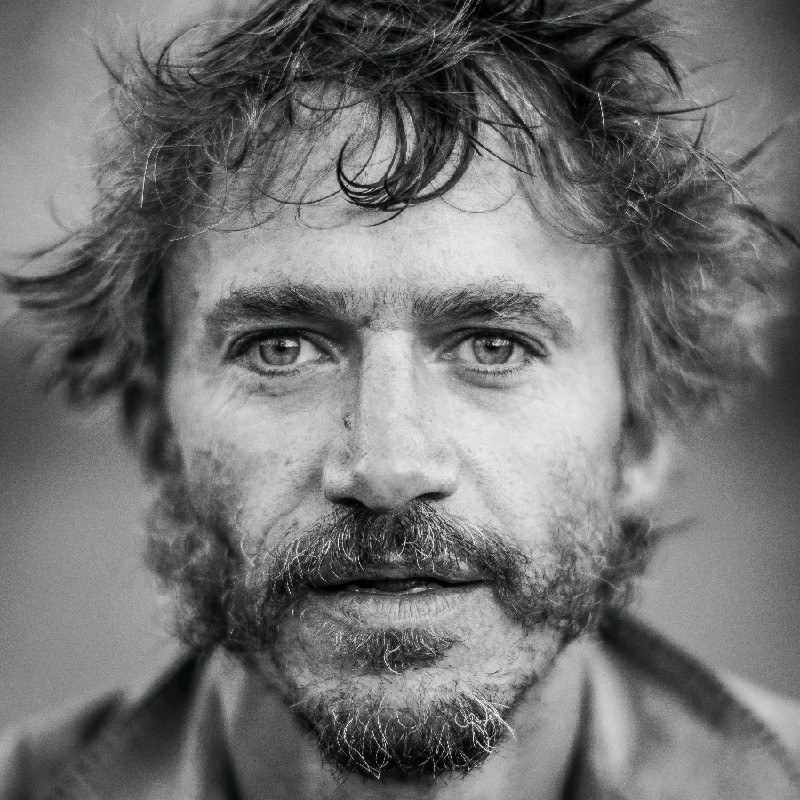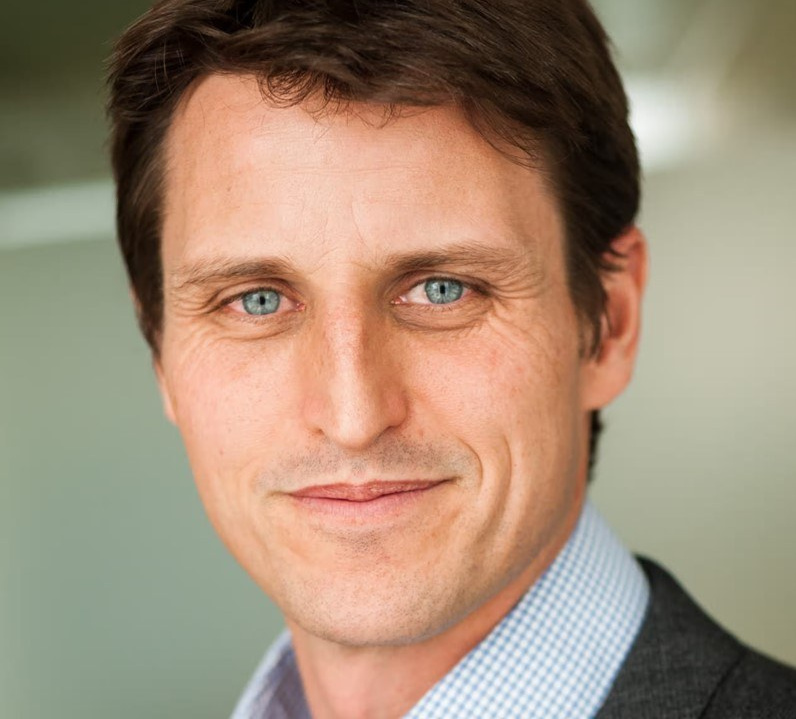St John's College is pleased to announce that Dr Rutledge Stephen (Steve) Boyes (Hill 1996) and Luke Potter (Nash 1995) are the recipients of this year's Golden Eagle Award.
The Golden Eagle Award was launched in 2004 by the Old Johannian Association in partnership with the College to recognise and celebrate the extraordinary impact that Old Johannians have made in South Africa and internationally. The award seeks to honour the valued, lasting contributions of Old Johannians who have "made a difference" in a community, industry, arena of life, or field of study. It is given to an Old Johannian who is nominated by a fellow Old Johannian for consideration.
Dr Rutledge Stephen (Steve) Boyes (Hill 1996)
Fellow, National Geographic Society
Founder, National Geographic Okavango Wilderness Project
Member, Royal Geographical Society
Senior Fellow, TED Conferences
Explorer of the Year, National Geographic Society
Associate Research Fellow, Fitzpatrick Institute of African Ornithology
Founder and Executive Chairman, Wild Bird Trust
Africa Coordinator, International Parrot Research Group
Mere words seem inadequate to portray Dr Steve Boyes, a passionate advocate for preserving the last outposts of the African wilderness and its crucial water reserves that support millions of people and countless species of plants and animals.
He also champions protecting the Cape Parrot in the Amatola Mountains, enabling local communities to create yellowwood forests and fostering communal pride in conservation.
Steve attended St John’s College from 1990 until he matriculated in 1996. He was an Academic Tie holder and served as the Vice-Captain of the College Athletics team. An intimation of his future passion and excellence in biodiversity was evident when he won the distinguished J D Skinner award for a rigorously researched Biology project in Lower Five.
After leaving St John's, Steve studied at Stellenbosch University and obtained a BSc in Forestry and Nature Conservation. He continued his studies at the University of KwaZulu-Natal, obtaining a Master's degree in Environmental Development, specialising in protected areas. In 2009, Steve obtained his doctorate in Zoology at the same university. He continues his work as an Associate Research Fellow in Ornithology at the University of Cape Town, continuing his scientific exploration of the African wilderness.
After his first degree, Steve worked for a year as a biodiversity assessor for Mondi Forests. He then worked at Vumbura Plains in the northern Okavango Delta, becoming the General Manager of the Wilderness Safaris Group. In 2008, Steve started working as a coordinator of the Cape Parrot Group, later becoming the Africa Director of the World Parrot Trust and the Africa Coordinator of the International Parrot Research Group. Since 2009, Steve has served as the Executive Chairman of the Wild Bird Trust and Associate Research Fellow of the FitzPatrick Institute of African Ornithology.
Steve’s doctorate dissertation focused on the Meyer’s Parrot. His passion for conserving African parrots led him to give seminars and talks at universities such as Oxford, Cambridge, California and Colorado, as well as the Bronx Zoo. He has also presented papers at several local and international conferences. Steve embarked on the conservation of the critically endangered Cape Parrot in the Transkei region of South Africa. He is currently coordinating several community-based projects involving nest box workshops, an indigenous tree-planting scheme, and the management of a Cape Parrot sanctuary. This project not only protects this rare bird but also aims to improve the lives of the communities in the Eastern Cape by providing employment and raising awareness of the biodiversity of the mist-belt forests’ surrounding their villages.
Regarding his work in the Okavango Delta, Steve can be aptly described as a visionary adventurer and intrepid explorer. Despite encounters with crocodiles and hippos, flesh-eating bacteria, dodging minefields, living on a vegetarian diet for months, and contracting malaria, Steve tirelessly explored Africa's mystical, lush flora and fauna. As a scientist, he has excelled in making startling discoveries in previously uncharted wilderness environments.
After years of exploring the Okavango Delta, Steve made a remarkable discovery: ‘Dr Livingstone was wrong’. In 2015, Steve and his team, as part of the National Geographic Okavango Wilderness Project, mapped the Okavango River and its tributaries in unprecedented detail. Using satellite imagery and remote sensing data and thousands of kilometres of rowing expeditions via mokoro canoes along hippo paths, Steve and his team have conducted detailed and repeatable ecological surveys and established long-term environmental monitoring systems. Their work has guided the governments of Angola, Botswana and Namibia in building long-term resilience to climate change. A breakthrough discovery was the ‘Angolan Water Tower’, identified as the primary water source for the world’s largest transboundary conservation area and home to two-thirds of Africa’s remaining elephants. This discovery radically changed the understanding of the Okavango, Zambezi and Congo basins. By taking e-DNA samples, using camera traps and mapping all birds, wildlife and human activity, the explorers created 360-degree transects on ‘EarthViews’ to make their scientific discoveries accessible to all. Many new species of plants and animals have been recorded. Previously, no scientists had been there as armed conflict in Angola from 1961 to 2002 had rendered the region inaccessible. During their exploration, they discovered that the source of the Zambezi is the Lungwebungu River in Angola. (Steve remarked that Angola should have been called Zambia).
During his trips, Steve encountered the local Luchazi people, who had been isolated for 42 years. Steve felt a deep reverence for these isolated people, driven deeper into the Okavango Delta, retreating from war and minefields. He admired their knowledge of the landscape and how they steward their surroundings, practising small-scale agriculture and sustainable hunting. The National Geographic programme now also encompasses infrastructure development by establishing schools, clinics and small enterprises in these communities. At present, Steve is exploring the ‘Cassai Megatransect’ in the Angolan Highlands, furthering the understanding of the importance of Africa’s water systems.
Dr Steve Boyes passionately believes in the wilderness saving humanity. He calls being in nature ‘our only superpower’. He believes that the wilderness is the birthplace of all religions and mentions that it is where Muhammad, Moses and Jesus went and sat quietly. ‘We need to sit silently in the wilderness and listen to the universe and ourselves’.
Dr Steve Boyes is awarded the Golden Eagle Award for his extensive use of multiple and accessible information platforms and his rigorous scientific research and exploration. He has been a strong advocate for preserving the biodiversity of Africa's wilderness areas for the benefit of humankind.
Luke Potter (Nash 1995)
Luke Potter came to St John’s College from Pridwin Preparatory School. At Pridwin, he was well-regarded for his participation in sports and chess and his academic excellence. In his final year, he also won the Des Hilton Ambassador Award, an award presented to a student who embodies the values that are so important to Pridwin. Luke continued his record of academic excellence at St John’s College, obtaining distinctions in mathematics and history in his final year.
Luke went on to study at the University of the Witwatersrand. He started his career as a brand manager for Unilever in 2002, after which he spent some time on the high seas, sailing as a first mate on mega-sailing yachts until the end of 2003. Luke graduated with an MBA from Wits in 2008. During his MBA studies, he worked as a senior business analyst at Ask Africa, a market research company. He returned to Unilever, where he worked as a consultant in the Health Economic and HIV/AIDS Research Division until 2010, where his strategic planning helped integrate child welfare services, offering sustainable solutions to child vulnerability in South Africa.
Luke then moved to Technoserve as the Country Director. Technoserve, a Bill and Melinda Gates Foundation-funded company, operated in Rwanda, Uganda and Kenya, targeting 175 000 smallholder farmer to significantly improve their livelihoods. Luke later became the Africa Programme Director of the Gatsby Charitable Foundation. He was instrumental in establishing the forestry programme and a team workers corps in Kenya, and he provided crucial leadership, guidance and support to the Tanzanian forestry and Rwandan tea programmes.
On 15 January 2019, Luke’s life was cruelly cut short during a terrorist attack in Nairobi, Kenya. At only 40 years old, he had already made a significant humanitarian impact. Many tributes exist as a testament to his commitment to development in Africa. Colleagues described him as a true mentor, displaying patience and kindness, testifying to his selfless nature and commitment to fostering the growth of others.
Luke became known for his humility and unwavering commitment to what he saw as the right path. In a tribute to Luke Potter, the Gatsby Foundation wrote that he was ‘respected by all he worked with, bringing huge drive, determination, a relentless work ethic, and a thirst for new ideas to every project’. In appreciation of Luke Potter’s work among the world’s most vulnerable people living in low-income countries, the Gatsby Charitable Foundation donated US$100,000 ‘to fund student sponsorships at St John’s College’. The scholarship aims to enable children who are aligned with Luke’s values to have the opportunity for such an education. Augmented substantially by donations from Luke Potter’s schoolmates, the scholarship was first awarded in 2023 to a Remove (Grade 8) student selected for his outstanding character, resilience, potential, and commitment to helping others.
The Golden Eagle Award is posthumously awarded to Luke Potter for his caring and indefatigable service leadership among vulnerable communities in Africa, making the world a better place. Beyond the call of duty, his selfless service will remain a memorial to all Johannians, embodying the values of Lux, Vita, Caritas.


